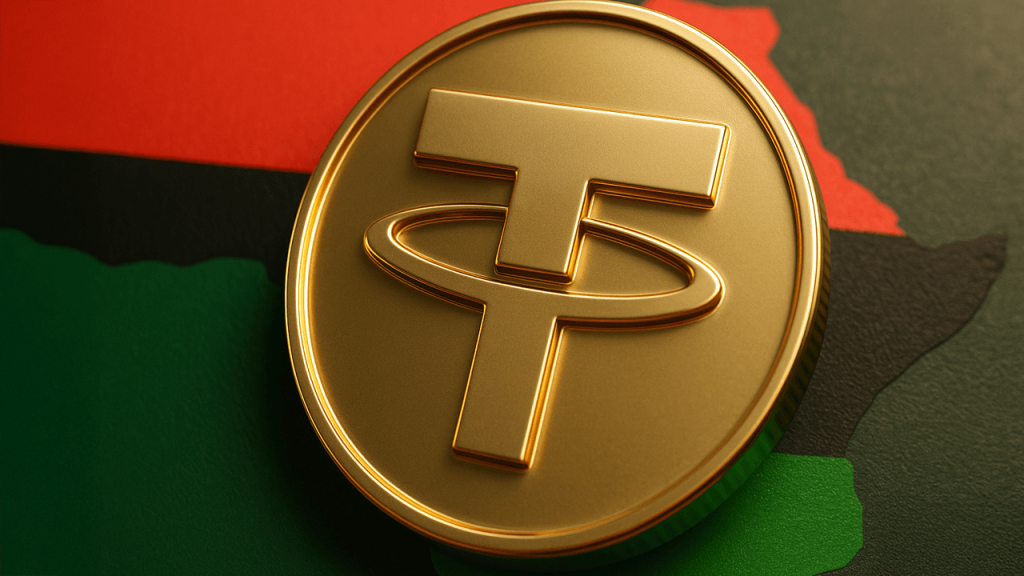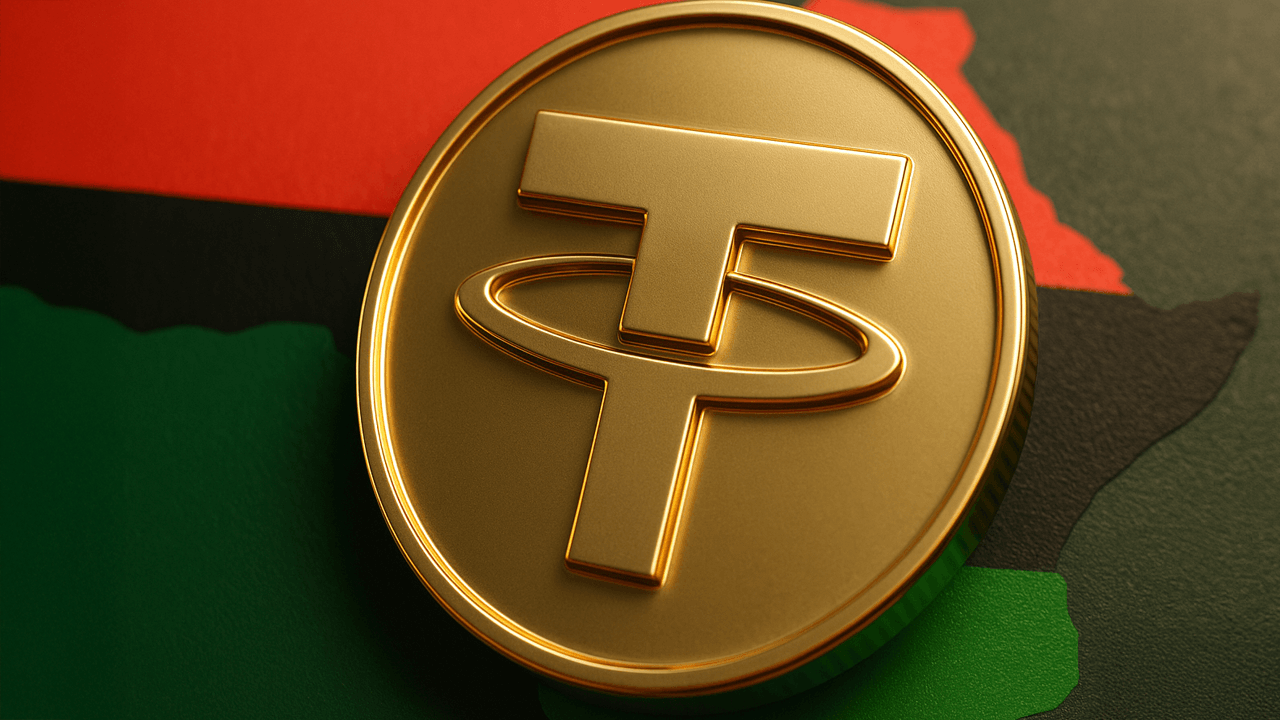
Bridging the Digital Divide: Tether’s Foray into Zanzibar and the Future of Financial Inclusion in Africa
The digital revolution has transformed financial services globally, yet millions in Africa remain unbanked or underbanked. Traditional financial systems often fail to reach remote and underserved communities due to infrastructure limitations, high costs, and regulatory barriers. However, the rise of digital finance and blockchain technology presents a promising solution. Tether, a leading stablecoin issuer, has taken a significant step toward advancing financial inclusion in Africa by signing a Memorandum of Understanding (MoU) with the Zanzibar eGovernment Authority (eGAZ). This partnership aims to promote digital asset education, foster financial innovation, and strengthen the region’s digital economy. This article explores the implications of this collaboration, Tether’s broader strategy in Africa, and the challenges and opportunities of financial inclusion on the continent.
The Strategic Importance of the Tether-eGAZ Partnership
The MoU between Tether and eGAZ is a strategic alliance that could reshape the financial landscape in Zanzibar and East Africa. The partnership focuses on three key areas:
Advancing Digital Asset Education
One of the primary goals of the collaboration is to enhance financial literacy among Zanzibar’s population. By organizing workshops and educational programs, the partnership seeks to demystify stablecoins and blockchain technology. Financial literacy is a critical enabler of financial inclusion, as it empowers individuals to make informed decisions about their finances. In a region where traditional banking services are often inaccessible, digital assets offer an alternative that can be accessed via mobile devices. By educating the public on the benefits and risks of digital assets, Tether and eGAZ are laying the groundwork for broader adoption and financial empowerment.
Promoting Financial Innovation
The partnership also aims to stimulate financial innovation in Zanzibar. By fostering a deeper understanding of digital assets, the collaboration encourages the development of tailored financial solutions that address the unique needs of the region. For instance, digital assets can facilitate cross-border remittances, which are a lifeline for many African households. Traditional remittance services often come with high fees and slow processing times, but blockchain-based solutions can offer faster, cheaper, and more transparent alternatives. By promoting innovation in this area, Tether and eGAZ can help unlock new economic opportunities for individuals and businesses in Zanzibar.
Strengthening the Digital Economy
The MoU aligns with Tether’s vision of fortifying Africa’s digital economy. By promoting digital asset literacy and regulatory clarity, the partnership contributes to the development of a robust and innovative financial ecosystem. A strong digital economy can drive economic growth, create jobs, and improve the quality of life for citizens. In Zanzibar, where tourism and fishing are the primary economic drivers, digital finance can provide new avenues for economic diversification and resilience. For example, digital assets can enable small businesses to access global markets, attract investment, and manage risks more effectively.
Tether’s CEO, Paolo Ardoino, has emphasized the company’s commitment to advancing financial literacy and sustainable blockchain innovation in Africa. This partnership is a testament to Tether’s long-term strategy of empowering African enterprises and facilitating greater participation in the global economy.
Tether’s Broader Strategy in Africa
The collaboration with eGAZ is part of Tether’s broader push into the African financial ecosystem. With a significant share of the global stablecoin market, Tether has been actively expanding its footprint in Africa through strategic partnerships and investments. This expansion is driven by the recognition of Africa’s potential as a hub for digital finance innovation and the growing demand for accessible and efficient financial solutions.
Investments in African Ventures
Tether has made strategic investments in African ventures to accelerate financial inclusion and unlock global liquidity for African enterprises. For instance, Tether’s USD₮ stablecoin can provide African businesses with a stable and efficient means of conducting international transactions, mitigating the risks associated with volatile local currencies. By integrating USD₮ into the financial ecosystem, Tether can help African enterprises access global markets, attract investment, and manage risks more effectively.
Collaboration with Regulators
Tether’s approach to expansion in Africa is characterized by a focus on regulatory clarity and collaboration. By working closely with regulators, Tether can help ensure that the adoption of digital assets is sustainable and beneficial. For example, Tether has engaged with regulators in Nigeria, Kenya, and South Africa to promote a balanced approach to digital asset regulation that fosters innovation while protecting consumers. This collaborative approach is essential for building trust and ensuring the long-term success of digital finance initiatives in Africa.
Addressing the Challenges of Financial Inclusion in Africa
Financial inclusion remains a significant challenge in Africa, with a substantial portion of the population lacking access to traditional banking services. Several factors contribute to this challenge, including limited infrastructure, high costs, lack of financial literacy, and regulatory barriers.
Limited Infrastructure
In many rural areas in Africa, inadequate physical infrastructure, such as bank branches and ATMs, restricts access to financial services. Digital finance, particularly mobile money and blockchain-based solutions, offers a promising avenue for addressing this challenge. Mobile money has already made significant strides in promoting financial inclusion across Africa, enabling millions of people to conduct transactions, save money, and access credit through their mobile phones. Tether’s foray into Zanzibar and its broader efforts to promote digital asset education and adoption have the potential to further accelerate financial inclusion by providing access to a wider range of financial tools and services.
High Costs
Traditional banking services often come with high fees and charges, making them unaffordable for low-income individuals. Digital finance can offer more affordable alternatives, as blockchain-based solutions can reduce transaction costs by eliminating intermediaries. For instance, Tether’s USD₮ stablecoin can facilitate low-cost cross-border remittances, which are a critical source of income for many African households. By reducing the cost of financial services, digital finance can make them more accessible to underserved populations.
Lack of Financial Literacy
A lack of understanding of financial products and services can deter individuals from participating in the formal financial system. Financial literacy is a critical enabler of financial inclusion, as it empowers individuals to make informed decisions about their finances. Tether’s partnership with eGAZ aims to address this challenge by promoting digital asset education and capacity building. By educating the public on the benefits and risks of digital assets, Tether and eGAZ can help individuals make informed decisions and participate more fully in the financial system.
Regulatory Barriers
Complex and restrictive regulations can hinder the growth of financial service providers and limit their ability to reach underserved populations. Tether’s focus on regulatory clarity and collaboration is essential for overcoming this challenge. By working closely with regulators, Tether can help ensure that the adoption of digital assets is sustainable and beneficial. For example, Tether has engaged with regulators in Nigeria, Kenya, and South Africa to promote a balanced approach to digital asset regulation that fosters innovation while protecting consumers.
The Role of Blockchain Technology in Africa’s Economic Future
Blockchain technology, the underlying technology behind cryptocurrencies like Bitcoin and stablecoins like Tether, holds immense potential for transforming the financial landscape in Africa. Some of the key benefits of blockchain technology include:
Decentralization
Blockchain’s decentralized nature reduces reliance on intermediaries, lowering transaction costs and increasing efficiency. In Africa, where traditional financial systems are often inefficient and costly, decentralized finance (DeFi) can offer a more accessible and affordable alternative. For instance, DeFi platforms can enable individuals to access credit, save money, and invest without relying on traditional banks.
Transparency
Blockchain provides a transparent and auditable record of transactions, enhancing trust and accountability. In a region where corruption and lack of transparency are significant challenges, blockchain can promote greater accountability and reduce the risk of fraud. For example, blockchain-based supply chain solutions can help ensure the integrity of goods and services, benefiting both businesses and consumers.
Security
Blockchain’s cryptographic security features make it highly resistant to fraud and cyberattacks. In Africa, where cybercrime is a growing concern, blockchain can provide a more secure means of conducting transactions. For instance, blockchain-based identity solutions can help protect individuals’ personal information and prevent identity theft.
Accessibility
Blockchain-based financial services can be accessed by anyone with an internet connection, regardless of their location or socioeconomic status. In Africa, where internet penetration is rapidly increasing, blockchain can offer a more inclusive financial system. For example, mobile money has already demonstrated the potential of digital finance to reach underserved populations, and blockchain-based solutions can further expand access to financial services.
By promoting the adoption of blockchain technology, Tether and eGAZ are paving the way for a more inclusive, efficient, and transparent financial system in Zanzibar. This can unlock new economic opportunities, empower local businesses, and improve the lives of ordinary citizens.
Ensuring Sustainable Progress
While the potential benefits of digital assets and blockchain technology are undeniable, it is crucial to approach their adoption in a responsible and sustainable manner. This requires careful consideration of several factors, including regulatory clarity, consumer protection, cybersecurity, and education and awareness.
Regulatory Clarity
Clear and well-defined regulations are essential for fostering innovation while protecting consumers and preventing illicit activities. Tether’s focus on regulatory clarity and collaboration with regulators is a commendable step in the right direction. By working closely with regulators, Tether can help ensure that the adoption of digital assets in Zanzibar and across Africa is sustainable and beneficial.
Consumer Protection
Adequate measures must be put in place to protect consumers from fraud, scams, and other risks associated with digital assets. Tether’s commitment to consumer protection is evident in its efforts to promote financial literacy and capacity building. By educating the public on the benefits and risks of digital assets, Tether can help individuals make informed decisions and protect themselves from potential harm.
Cybersecurity
Robust cybersecurity protocols are necessary to safeguard digital assets from theft and cyberattacks. Tether’s focus on security and collaboration with cybersecurity experts is essential for ensuring the safety of digital assets in Zanzibar and across Africa. By implementing best practices in cybersecurity, Tether can help build trust and confidence in digital finance.
Education and Awareness
Ongoing education and awareness campaigns are crucial for ensuring that individuals understand the risks and benefits of digital assets and can make informed decisions. Tether’s partnership with eGAZ is a testament to its commitment to education and capacity building. By organizing workshops and educational programs, Tether and eGAZ can help individuals make informed decisions and participate more fully in the financial system.
Conclusion
The partnership between Tether and the Zanzibar eGovernment Authority represents a significant milestone in the journey toward financial inclusion and digital transformation in Africa. By combining Tether’s expertise in digital assets with eGAZ’s commitment to technological advancement, this collaboration has the potential to unlock new economic opportunities, empower local communities, and build a more inclusive and sustainable financial future. As Africa embraces the digital revolution, initiatives like this one will play a crucial role in bridging the digital divide and creating a brighter future for all. The success of this partnership will depend on sustained efforts to promote financial literacy, foster innovation, and ensure regulatory clarity. By working together, Tether, eGAZ, and other stakeholders can help Africa realize its full potential as a hub for digital finance innovation and economic growth.





